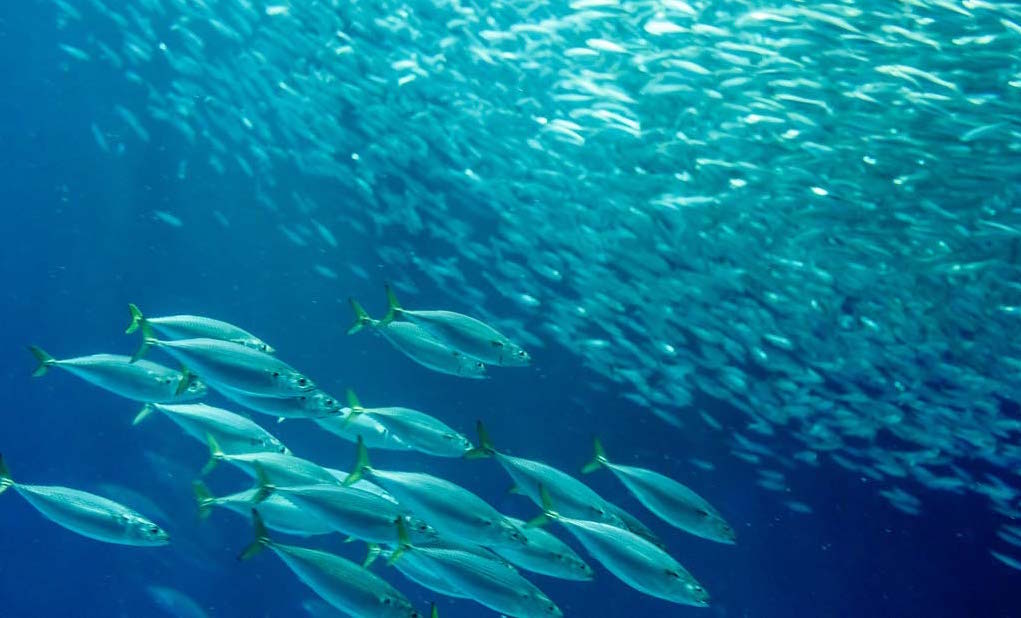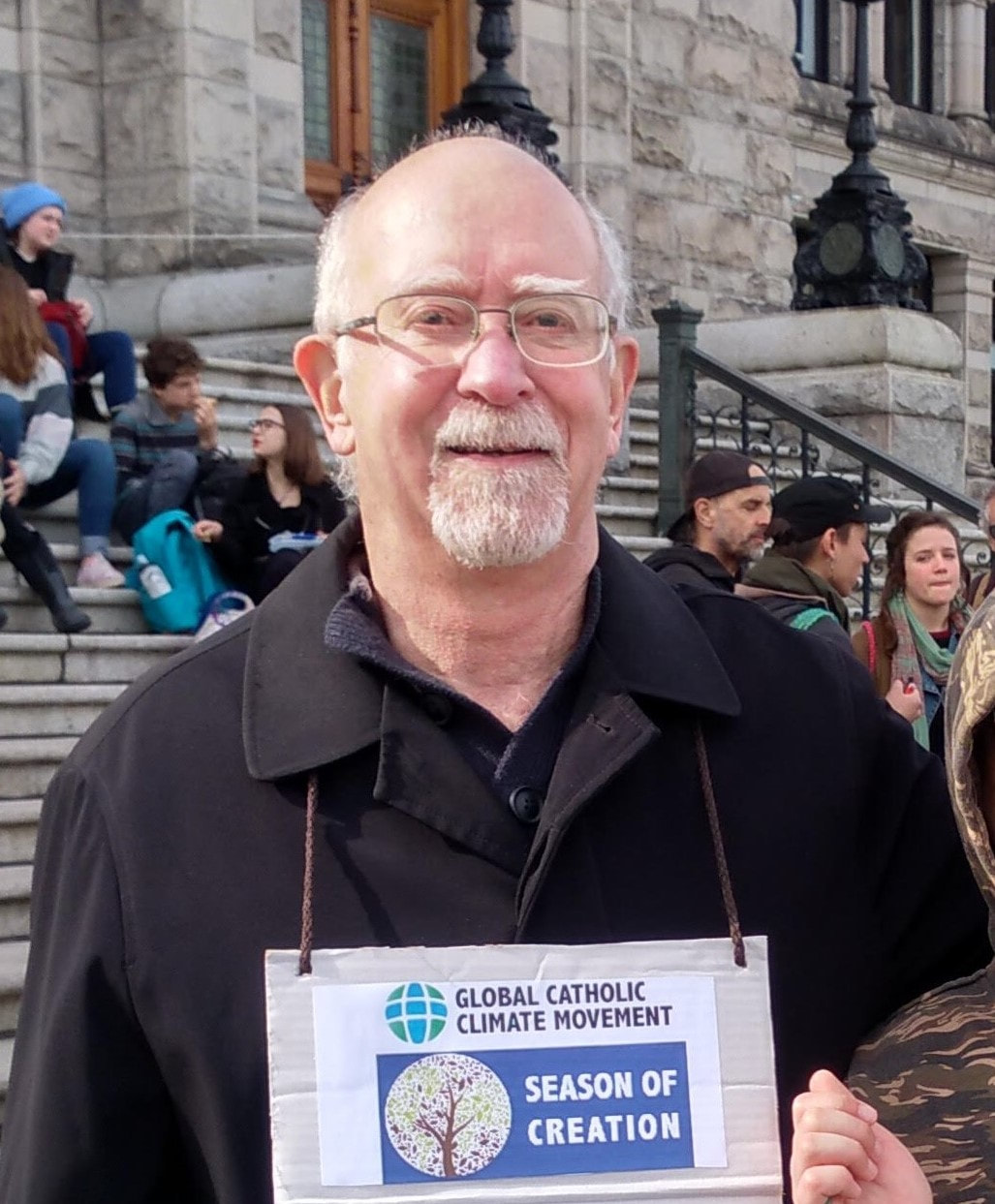| As we face the Covid-19 pandemic, I pray for health and resilience (love, courage & hope) for our entire human family in this time of great uncertainty. My thoughts are with all but especially the newly unemployed in Canada, especially Alberta the hardest hit, & also communities in the Global South whose prior hardships are worsened by this crisis in contrast to which ours pale in comparison. Let us reflect during Holy Week. Happy Easter! |
“A time of choosing” as Pope Francis says?
An opportunity to transform the way we live?
A reminder that Solidarity is key to addressing both the climate crisis and the pandemic?
What does the Holy Father (27 March) say about the lessons to be learned?
“We have realized that we are on the same boat, all of us fragile and disoriented, but at the same time important and needed, all of us called to row together, each of us in need of comforting the other. On this boat… are all of us. Just like those disciples, who spoke anxiously with one voice, saying “We are perishing” (v. 38), so we too have realized that we cannot go on thinking of ourselves, but only together can we do this.”
"Greedy for profit, we let ourselves get caught up in things and be lured away by haste. We did not stop at your reproach to us, we were not shaken awake by wars or injustice across the world, nor did we listen to the cry of the poor or of our ailing planet."
“You are calling on us to seize this time of trial as a time of choosing. It is not the time of your judgement, but of our judgement: a time to choose what matters and what passes away, a time to separate what is necessary from what is not. It is a time to get our lives back on track with regard to you, Lord, and to others.”
“Let us not quench the wavering flame (cf. Is 42:3) that never falters, and let us allow hope to be rekindled.” ....READ MORE
“From de facto interconnection to chosen solidarity …
Gospel faith put to the test … Everyone depends on everyone else”
So says the Pontifical Academy for Life: Global Pandemic And Universal Brotherhood
“We are now facing unprecedented challenges with the spread of COVID19. The argument has been made that climate change has had a significant impact on the development of infectious viruses such as Coronavirus.” .....Read more
This excerpt from Pope Francis’ Laudato Si’ written in 2015 applies just as much to the pandemic today and in future as it does to the climate emergency:
“14. … Regrettably, many efforts to seek concrete solutions to the environmental crisis have proved ineffective, not only because of powerful opposition but also because of a more general lack of interest. Obstructionist attitudes, even on the part of believers, can range from denial of the problem to indifference, nonchalant resignation or blind confidence in technical solutions. We require a new and universal solidarity.”
Solidarity Sunday
Let us remember in our prayers and donations, the people of the Global South in this time of COVID 19, realizing that however difficult our situation is, it pales in comparison with that of the more vulnerable people of the world. The Solidarity Sunday (including Share Lent) collections, typically held on the 5th Sunday of Lent, was missed in some Canadian parishes this year. Thus, Development & Peace /Caritas Canada’s overseas partners may be adversely affected if collections are low – even as the needs will escalate, e.g. in Amazonia 30 March it was 537 cases and 10 deaths i.e. still low but growing exponentially.
Once again (!) a reminder to donate directly here: Development and Peace
World Water Day 2020 , 22 March in case you missed it, was about water and climate.
Again this is interconnected with the pandemic. Do refugees in camps have the ability to frequently wash their hands and keep their distance? If not, can you imagine the consequences? Horrendous and overwhelming! Does the world think and act like we are one human family?
UN Secretary General António Guterres “said he wanted to mobilise a double digit percentage of the global economy to "break not bend" the growth curve of coronavirus. And it is not only breaking the curve of the virus that should be at the forefront of global efforts, he said, but to also seize the dramatic situation "as an opportunity" to create an economy that is more inclusive and sustainable going forward.
"Many things will change, I would say irreversibly in our lives," he told Euronews.” ” ...Read more
Let us hope he is right and that irreversible change will be for the common good and not corrupt elites.
The pandemic is playing havoc with the economy
As David Suzuki puts it: “Can we relearn what humanity has known since our very beginnings, that we live in a complex web of relationships in which our very survival and well-being depend upon clean air, water and soil, sunlight (photosynthesis) and the diversity of species of plants and animals that we share this planet with? In this disaster lies an opportunity to reflect and change direction in the hope that if we do, nature will be far more generous than we deserve. We should be asking what an economy is for [and for whom?], whether there are limits, how much is enough …” and does stuff actually make us happy? .....Read more
Who benefits and who pays?
In both the two following cases (Canada Oil & gas and Branson) we are talking about taxpayers paying. Certainly jobs can be created by government subsidies to companies that create jobs but when things go bad we need to ensure that the bailouts help the workers and not just the top executives and shareholders. Ottawa’s role should be focused on helping unemployed oil and gas workers and retraining.
The International Monetary Fund periodically assesses global subsidies for fossil fuels as part of its work on climate, and it found in a recent working paper that the fossil fuel industry got a whopping $5.2 trillion in subsidies in 2017. ...Read more
Canada’s subsidies to oil and gas companies reached $3.3 Billion in 2015 alone, contravening our commitments to climate change mitigation. Surely most of that could be re-invested in sustainable energy thereby also creating jobs?
Alberta Premier Jason Kenney announced 31 March 2020 a $1.5 billion government investment in the Keystone pipeline (KXL) to move oilsands heavy oil that will accelerate construction, ensuring the pipeline will be operational by 2023. The province says the project will create over 1,400 direct and 5,400 indirect jobs in Alberta during construction and will generate an estimated $30 billion in tax and royalty revenues for future generations of Albertans and Canadians. How will that help our commitments to climate change mitigation? OK, so he heard the cry of the poor unemployed but, as mentioned, there are other ways to address that and he turned a deaf ear to the cry of the earth!
The Globe and Mail reported on March 19 that the Government of Canada is preparing a $15-billion “bailout package” for oil and gas companies similar to what Canada did for the auto industry in 2008. This is why according to the Canadian Energy Research Institute: “The oil and gas sector plays a key role in the Canadian economy. In 2013, the energy industry in Canada directly and indirectly accounted for 13.4 percent of Canada’s GDP, with the direct effects of the oil and gas sector contributing $133 billion, or 7.5 percent of GDP.1 The oil and gas sector employed 190,170 people in 2013, accounting for 1.1 percent of Canada’s workforce. … [Oil sands can be strip mined at the surface or by in situ extraction: see 1 min 50 secs video]. In situ bitumen extraction, on the other hand, involves oil sands too deep to be mined, and represents 80 percent of the 2013 remaining oil sands reserves. To mobilize the bitumen in situ (Latin for “in position”), the bitumen is heated by injecting steam into the reservoir by either cyclic steam stimulation (CSS) or steam assisted gravity drainage (SAGD). The more proximate reason is the current price war between Saudi Arabia and Russia and that prices for Western Canadian Select bitumen-blend crude are around $5.00. The oil sands need “an unenviable US$45/bbl Brent, on average, to cover the cost of production before capex. If Brent averages US$35/bbl for 2020 we expect corporate cash flow from the sector to be US$17 billion in the red.” [The Royal Bank of Canada energy research team suggest the ‘break-even’ price for a typical SAGD project is probably around $52/bbl]
“We would like to raise concerns that the federal government is preparing a $15 billion “bailout package” for oil and gas companies.
As [265] Canadian researchers in multiple fields related to the climate crisis and the economy, we urge the government to channel public revenues both to the immediate health crisis, and toward economic planning that will provide long-term benefits for Canadian workers and families, our ecosystems and the climate. We also urge governments at all levels to avoid sacrificing democratic principles in the name of expediency, by including a broad range of civil society representatives in decision-making about how these large investments in our future will be made. It is not acceptable to give privileged access to big business associations while excluding representatives from trade unions, universities, municipalities, Indigenous communities and non-profit organizations that work on behalf of the public interest.”
Read more at National Observer.com.
The 265 Canadian researchers are not alone.
The International Energy Agency urged governments to include investment in renewal energy projects in the stimulus initiatives launched to address the coronavirus crisis. ....Read more
A large collection of health, faith, environmental, labour and social justice groups, representing one million three hundred thousand Canadians, have sent a letter to Prime Minister Trudeau and his cabinet asking that in the federal bailout to the oil and gas industry, expected later this week, no more money be given to companies, only to workers. A Just Transition is needed. Also see Your guide to bailout people not corporations. Sign the petition here: BAIL-OUT WORKERS NOT BIG OIL
Will the coronavirus kill the oil industry and help save the climate?
“Analysts say the coronavirus and a savage price war means the oil and gas sector will never be the same again. The boldest say peak fossil fuel demand may have been dragged into the here and now, and that 2019 will go down in history as the peak year for carbon emissions. But some take an opposing view: the fossil fuel industry will bounce back as it always has, and bargain basement oil prices will slow the much-needed transition to green energy. … Most strikingly, the fat rates of return projected for the oil and gas projects have slumped from about 20% down to 6%, she said. “They’re very much in line now with what you can get from solar and wind projects.
Governments are deploying stupendous sums to stimulate the coronavirus-wracked global economy - $5 trillion from the G20 nations alone - but how it is disbursed remains uncertain. European Union leaders have promised to make their emergency measures align with their Green Deal programme and Fatih Birol, executive director at the International Energy Agency, has said there is a “historic opportunity" to pour investment into energy technologies that cut greenhouse gas emissions.
But the $2tn US coronavirus relief package is doling out $60bn to struggling airlines and offering low-interest loans that are available to fossil fuel companies, without requiring any action to stem the climate emergency. [In fact quite the reverse see last item in this blog]” ....Read more
What has happened in response to the pandemic revealed a new way of operating for governments. Sir Michael Marmot, professor of epidemiology and public health at University College London, and chair of the commission of the social determinants of health at the World Health Organisation said: “With Covid-19, everything [on austerity] went out of the window. It turns out austerity was a choice. The government can spend anything [in the context of the coronavirus crisis], and they have socialised the economy.” “They” in the quotation refers to the Conservative UK Government. N.B. the US Government, not normally in favour of socialism, except if it will get them elected, passed a $2.2 trillion economic rescue package steering aid to businesses, workers and health care systems!
A group of leading economists and global health experts including four Nobel prize-winners has urged the leaders of the G20 countries to devote trillions to helping poor countries out of the coronavirus crisis, or face a continuing crisis of migration, recurring global Covid-19 outbreaks, and social breakdown in the developing world. The experts said: “Developing countries are facing an unprecedented collective threat to human life, social cohesion and economic devastation. Massive economic losses will be incurred as countries desperately try to cope; people will migrate out of fear as the epidemic takes hold, leading to social disruption, violence and security issues.” ....Read more
Good Friday Collection for The Holy Land
Pope St Paul VI in 1974 established a special collection on Good Friday to support the Mother Church of Jerusalem and the various charities for the Christians of the Middle East and to continue to keep the Holy Places alive. Due to Covid-19 Pope Francis has postponed this Good Friday Collection to 13 September 2020. However, supporting the works of the Holy Land through donations to the Commissariat of the Holy Land in Canada is possible at any time, by cheque, postal order or online by credit card. Each donation must mention if it is for the general intent of the Custody of the Holy Land or for specific projects. At the closing of the year, donors may obtain a receipt for income tax filing purposes. For more info: https://commissariat.ca/supporting-us
No Comment:
Sir Richard Branson, who has a net worth estimated at USD 4 Bn, owns 51% of an airline (among about 400 other companies). The aviation industry along with many others is facing its worst crisis in decades. It was reported by The Financial Times that the airline Virgin Atlantic will ask the UK Government for a package of commercial loans and guarantees worth hundreds of millions of pounds.
Were you wondering what happened to the Wet’suet’en Governance and the Coastal Gas Pipeline?
The Union of B.C. Indian Chiefs issued an open letter urging federal and provincial governments to hit pause on the construction of the northern B.C. pipeline during the continuing health crisis. (Vancouver Sun, 31 March 2020) The Wet'suwet'en have cancelled all community and clan meetings due to covid-19.
On 1 March, hereditary leaders announced a proposed deal with the B.C. and federal governments to expedite negotiations to implement rights and title over the Wet’suwet’en people’s traditional territory. A resolution to the B.C. pipeline dispute, however, was not reached. [The company and provincial and federal governments still plan to go ahead.] A meeting of the Wet’suwet’en Nation’s five clans, to discuss the prospect of securing rights and title, had been expected by the end of March. Each of the clans held small gatherings during the first two weeks of March, but no date has been scheduled yet for the larger, all-clans meeting. [The conflict within the Nation i.e. among the hereditary chiefs and difference of opinion between the Band Councils and most Hereditary Chiefs is still unresolved.]
Fridays for Future
Canada became the 4th country in the world to join the Fridays For Future movement on 2 November 2018 (founded by Greta Thunberg in Sweden in August 2018). FFF Canada has had six national strikes: 7 December 2018; 15 March 2019; 3 May 2019; 24 May 2019; 20-27 September 2019 and 29 November 2019. Due to the #COVID19 pandemic, FFF Canada strongly suggests digital striking on Friday, April 3, 2020 which was supposed to be a national strike. Always follow the advice of your local health unit.
Greta Thunberg calls for digital climate strikes amid coronavirus. Greta herself has mild symptoms of covid-19.
To our American readers:
You may know this from the Franciscan Action Network: “This week, the EPA issued significant rollbacks to rules about auto emissions, opening the door for more pollutants directly related to respiratory health. This is the latest in a series of environmental de-regulations including last week’s announcement that the EPA suspended the enforcement of environmental laws while the COVID-19 pandemic is present. The midst of a worldwide public health crisis is not the time to reverse vital environmental and public health protections that benefit everyone, in fact we should be putting more regulations in place to protect public health.” (Dated 1 April!! )
Send an Email to Your Congress Member




 RSS Feed
RSS Feed